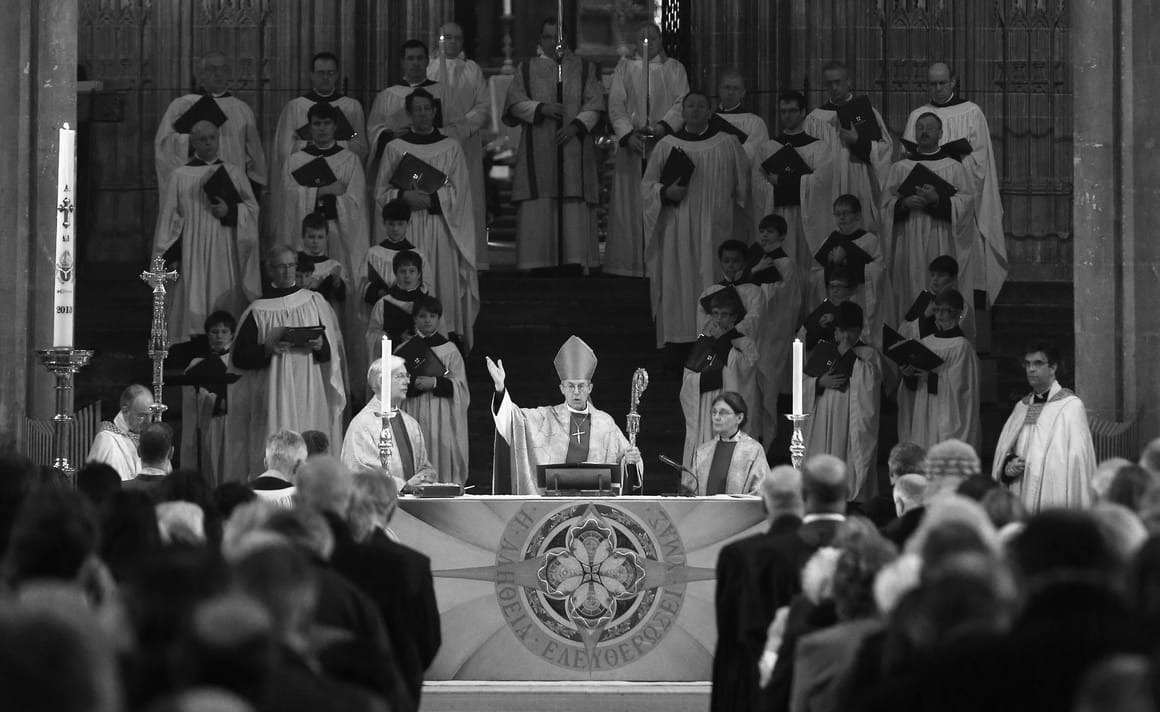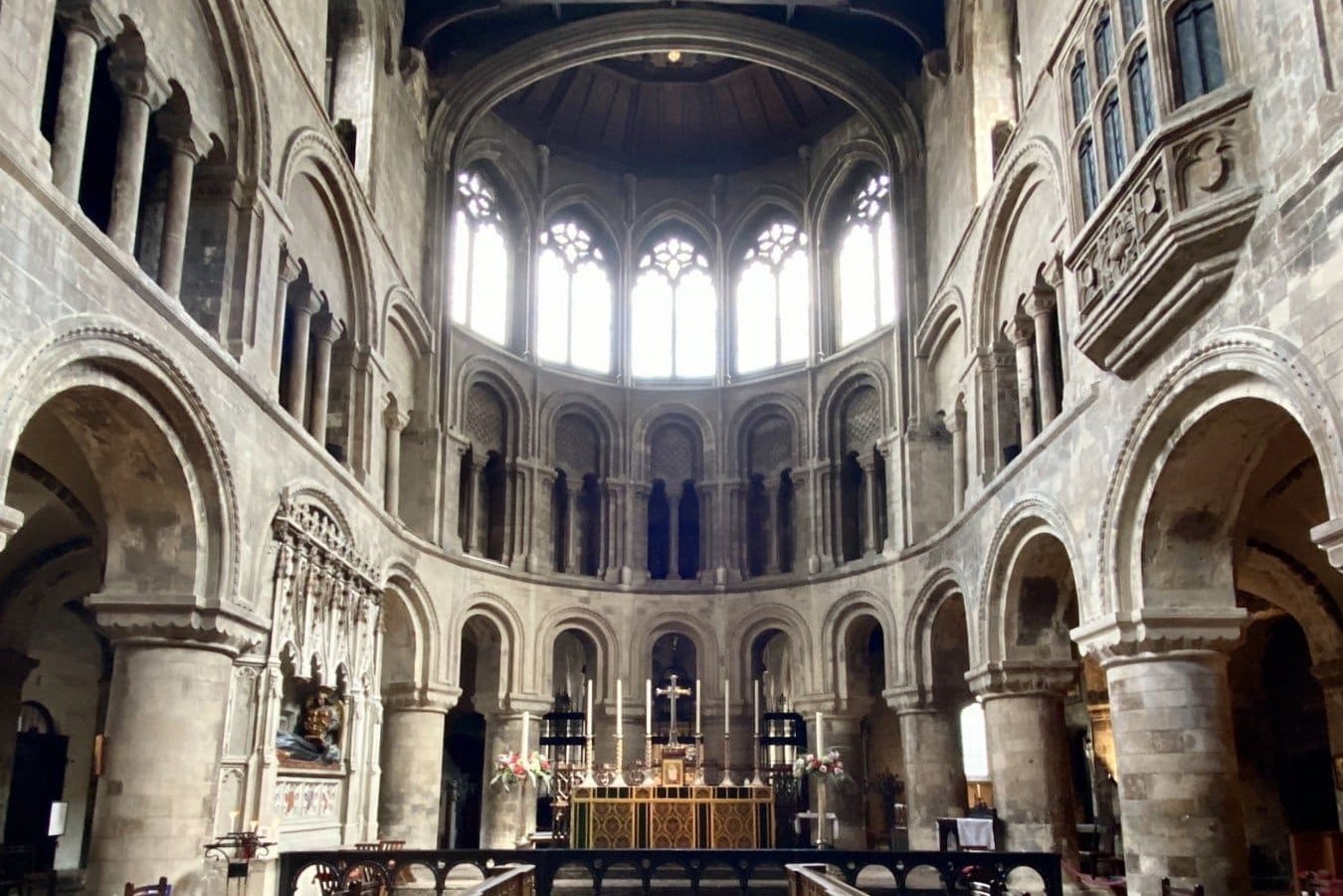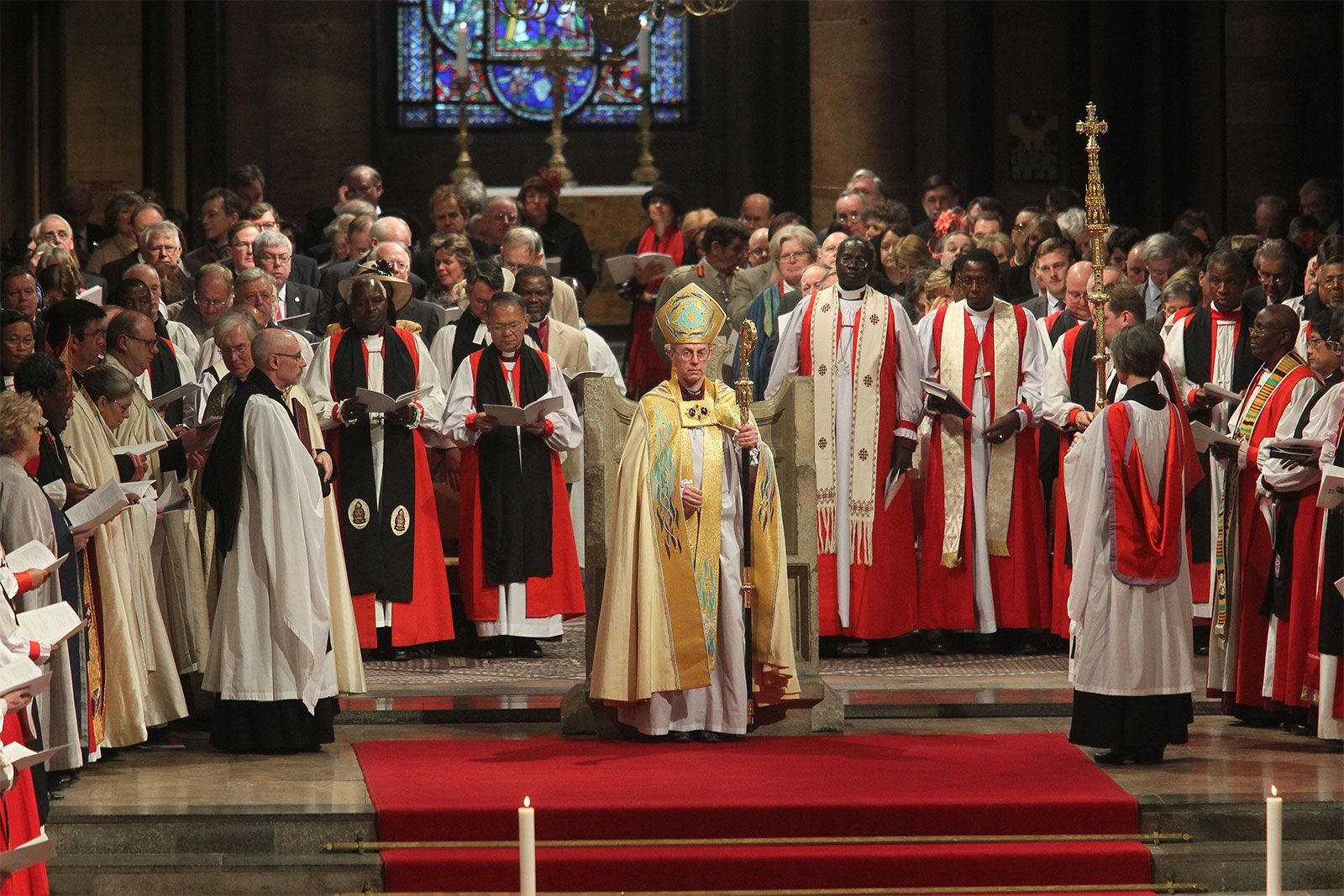Over recent months, I’ve found myself drawn to the historical sanctuary of St Bartholomew the Great, nestled in London’s bustling City. A chance encounter with its rector, the Rev Marcus Walker, at a conference led me to their ‘Evensong in the City’ services, designed for individuals like me: young professionals balancing a fast-paced life with a search for spiritual grounding.
Though my family has long stepped away from religious observance, identifying as an agnostic Anglican, I’ve always felt a peripheral connection to the Church of England.
From attending Anglican schools to being placed at Christ Church, Oxford, religion has skirted the edges of my life by happenstance. In the vein of Churchill, I consider myself a supportive outsider to the church, humorously pondering if God is interested in my fate.

The Church of God (Credits: POLITICO.eu)
My attendance at St Bart’s hasn’t reshaped my skepticism, but it has illuminated the profound experience of worship. The blend of ritual, ancient prose, and thoughtful sermons within centuries-old walls strikes a chord deep within me. More than just appealing to my love for tradition, it feels like an encounter with something beyond.
I’m not alone in this rediscovery. A surge of younger individuals gravitates toward the rich tradition and community offered by St Bart’s, eschewing contemporary services for a more historical approach to worship. Rev Walker posits that the church provides a thoughtful, credible representation of Anglicanism that resonates with us.
The appeal of St Bart’s, and perhaps Anglicanism at large, lies in its embrace of beauty, tradition, and a quiet patriotism. Attending services, I’m struck by a profound sense of belonging and a desire to uphold these values. Yet, recognizing my place in a dwindling congregation reflects broader trends; fewer people identify as Christian and even fewer as Anglican.
Despite the challenges, St Bart’s success hints at a potential path for the Church of England: adhering to its historical strengths might just draw in those looking for depth and continuity in their faith.

Historical sanctuary of St Bartholomew the Great (Credits: Look Up London)
However, the church’s struggle with modern pressures and an apparent estrangement from its traditional base is concerning. From closures to debates over historical accountability, the Church’s direction seems at odds with its foundational role in British conservatism.
The estrangement isn’t one-sided; as the church leans into contemporary societal narratives, it risks alienating those who once found solace and identity within its nave. The shift in the Church’s ethos, mirrored by a broader societal trend, leaves some conservatives questioning their affiliation and the future of this relationship.
My journey has taken me from a detached observer to someone deeply moved by the Anglican tradition, so much so that joining the faith now seems inevitable. Despite discussions of decline and disconnection, my experience is a testament to the enduring appeal of tradition and community.
As we go through these changing times, the importance of rekindling the bond between the Church and its once-core constituency cannot be overstated. A revival of faith, grounded in mutual respect and understanding, may well be the beacon of hope needed in our increasingly fragmented world.























